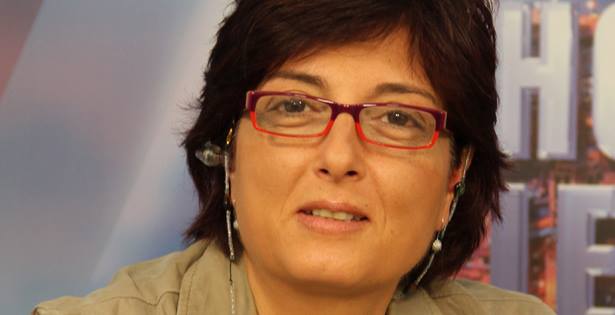Vera Siserian: “If you’re self-confident in what you’re doing, you don’t need to go against someone else’s opinion”

Hayern Aysor’s correspondent sat down for an interview with editor-in-chief of Lebanon’s Radio Sevan, psychologist and children’s writer Vera Siserian.
Hayern Aysor: Mrs. Siserian, what are the problems facing the Lebanese-Armenian community? What are the causes?
Vera Siserian: The major issue is related to the level of Armenian language proficiency. Not all Lebanese-Armenians know Armenian well, and there are reasons behind this. The first is the decline of the community due to the civil war that began in 1975. The community that once had 200,000 members now has nearly 100,000. The second reason is that people quickly accept the new phenomena and need to review some things, including lesson plans, specialists, etc. The third is the issue on training teachers who are experts in Armenian studies. Teachers very often lack professional education, and this is a serious problem.
Hayern Aysor: What problems do journalists face while working for Armenian language newspapers?
V. S.: Armenian media outlets not only lack journalists with a high level of Armenian language proficiency, but also guest professionals since they also have a low level of language proficiency. For instance, if we want to invite a nutritionist, we already know that he or she has to know a little English, a little Arabic, a little French and a little Armenian, which is unacceptable for broadcasting. We somewhat solved that problem through the use of the latest technologies. But what can we do? We’re growing accustomed to the conditions and continuing to do our job. We’re not limiting ourselves to Lebanon. We have created bridges across the USA, Canada and several countries across Europe, but first and foremost, with the Republic of Armenia and Artsakh.
Hayern Aysor: Is there really a gap in impartial news? If yes, how can the gap be filled?
V. S.: As you know, the classic Armenian Diaspora is guided by political parties that are based on several structures, including the media. When a media outlet is independent, it faces financial problems.
We were aware of all this when we established Radio Sevan, which is an independent radio station. In addition to financial difficulties, we also face technical difficulties. Lebanon isn’t a country hinged on legal foundations. True, the people are kind and hospitable, but they’re not consistent with the solutions to their problems. They don’t bother with solving the issues. We also have problems with the quality of sound, Internet access and more.
Hayern Aysor: Why did you establish Radio Sevan? Does it serve the same goal?
V. S. The goal has always been to preserve the Armenian identity, transmit national values and help develop the institute of independent media. Media outlets in Lebanon are primarily politically affiliated. Our objective was to create an alternative media outlet that would place “Armenianness” and the national identity first.
Hayern Aysor: What has your media outlet changed in the lives and mindsets of the Lebanese-Armenians?
V. S.: Eight years is not enough time, but it’s safe to say that, to a certain extent, we have reached our goal to have people think and express themselves freely. Our listeners can turn the radio on and find what they want. We don’t stop airtime, even if people speak against us. The right to freedom of speech prevails. If you’re self-confident in what you’re doing, you don’t need to go against someone else’s opinion.
Hayern Aysor: What is your policy on programs? Can your listeners expect to listen to news?
V. S.: We have programs for people of all ages. Journalists of the elder generation mainly prepare programs for their contemporaries, and the young journalists work for the youth since the interests of 18-20-year-olds are different from those of people of the elder generation. We try to maintain the balance in order to meet the demands of the youngest listener and the eldest listener. There is always news. We work from September to February, take a break and then come back and work until late July. We’ll be back with new programs after a three-week break.
Hayern Aysor: What advice would you give to Diaspora Armenian journalists?
V. S.: I would advise them to stay true to the Armenian identity, national values, ideas, as well as have professional skills. Most importantly, I would advise them to always stay connected to the homeland, like the baby is connected to the mother via the umbilical cord.
Amalya Karapetyan
4th year student of the Faculty of Journalism of Yerevan State University




 Արևելահայերեն
Արևելահայերեն Արևմտահայերեն
Արևմտահայերեն Русский
Русский






